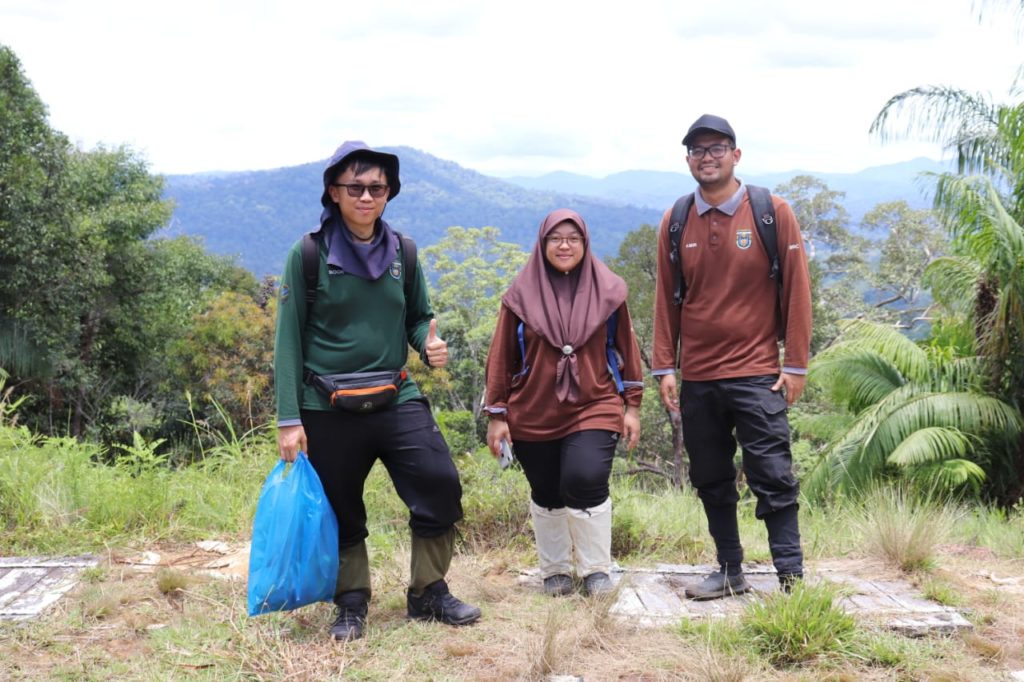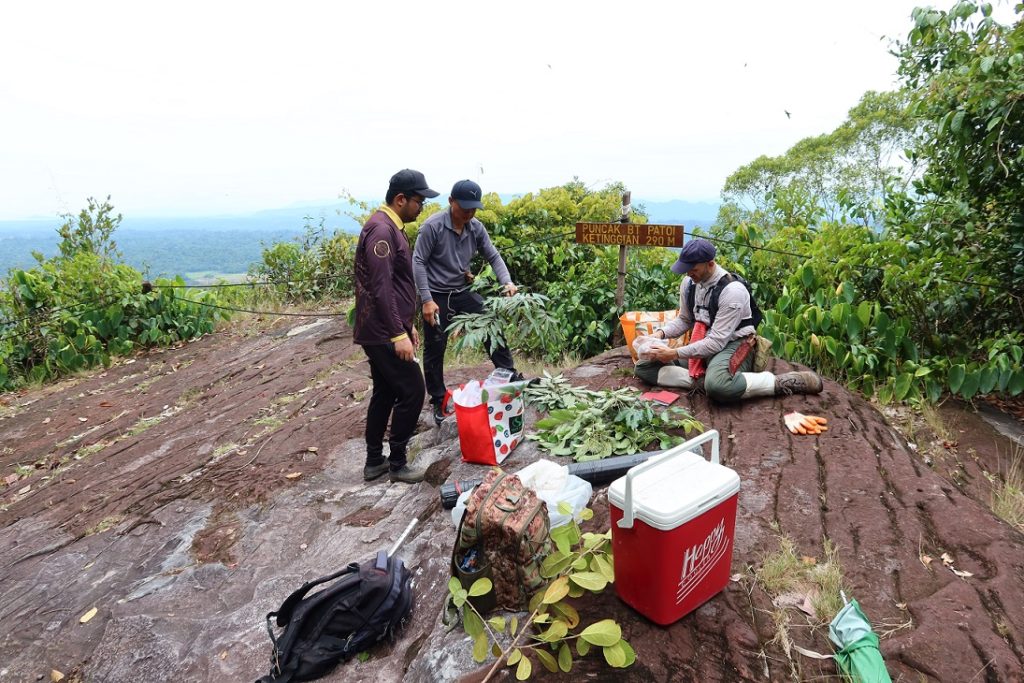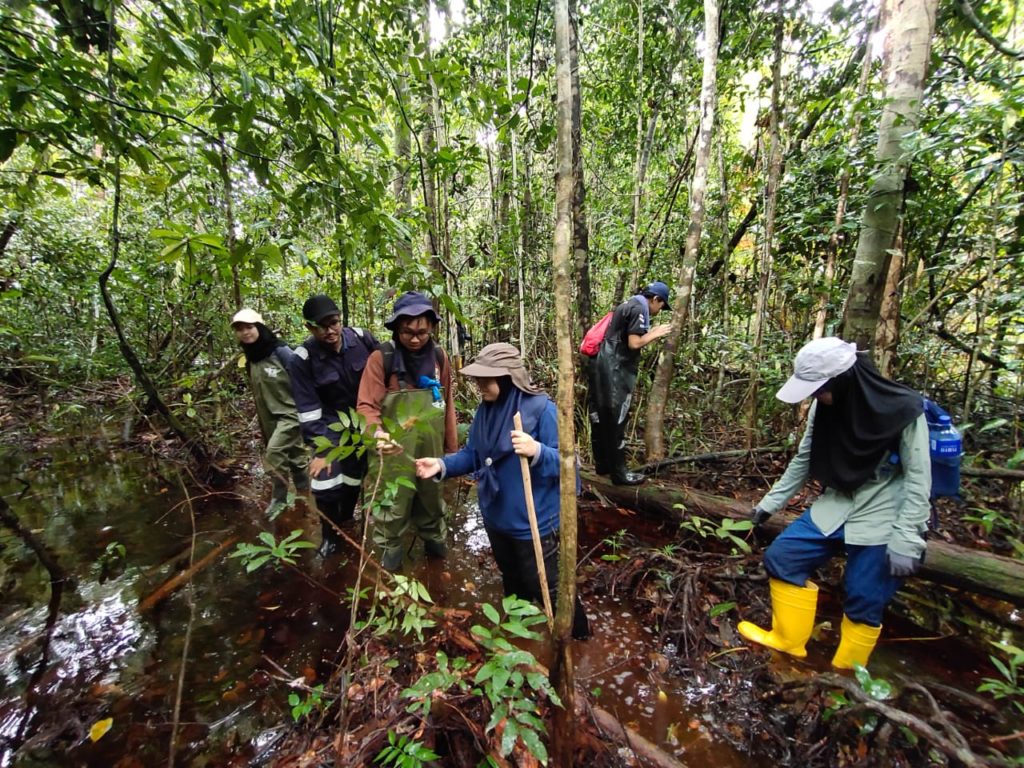UBD Botanical Research Centre (UBD BRC) has reached its fourth year since its inauguration in 2018. With a mission as a Centre of excellence for botanical research, education, and conservation, and to protect and share the knowledge of plants for a better sustainability, the UBD BRC has rapidly evolved into a key research centre focusing on botanical biodiversity, ecology and conservation.
The UBD BRC has defined three priority research focus areas: 1) Ex-situ and In-situ conservation of Brunei’s flora, 2) Cataloguing Brunei’s plant diversity, and 3) Applied research on natural products and medicinal plant research. Its research activities since its inauguration have revolved around these three focus areas, conducted by a dedicated team of researchers and botanists.
Fieldwork activities by the UBD BRC under several different projects including (from left to right): Dipterocarp project, Global Genomic Initiative, and with Wetlands International, Brunei on Seeds monitoring and collection.
In support of national efforts to conserve Brunei’s native flora, UBD BRC has been actively conducting field work to collect high conservation value plant species, particularly those of the Dipterocarpaceae, the dominant tree family in Brunei’s forests. In collaboration with Wetlands International Brunei , the UBD BRC team conducts regular collections and monitoring of seeds of native tree species, focusing on the beach and Peat Swamp Forests. These efforts have also been expanded to the Mixed-Dipterocarp forests and heath forests in various locations throughout Brunei.
In close collaboration with the Brunei Forestry Department, the UBD BRC has been intensifying efforts to catalogue Brunei’s plant diversity. This involves frequent fieldwork to different forest types of Brunei and collection of voucher specimens for the UBD BRC database and IBER Herbarium. UBD BRC has also embarked in the collection of samples of Brunei flora as part of IBER genomic research activities.
At the UBD BRC garden on UBD campus, collections of different species of stingless beehives are nurtured, and their unique honey are harvested at least once or twice a month for research purposes. UBD BRC researchers are also actively investigating the medicinal potential of native plants, through research on phytochemical screening of medicinal plants found at UBD BRC garden. These efforts have also focused mainly on ginger species as well as other plants commonly used by local communities.
As a testament to its increasing international reputation, the UBD BRC works closely with the Botanic Garden Conservation International (BGCI) and have secured externally funded projects under the BGCI and the National Geographic Society focusing on endangered Dipterocarp species, and other projects recently awarded for collection of samples for genomic research. There is also ongoing project collaboration focusing on genomic profiling of selected ginger species.




